Scientific Information/Data
Probiotics refer to the beneficial microorganisms that reside in our gastrointestinal (GI) tracts and appear to exist in a symbiotic relationship with the human body. Several probiotic bacteria, including Lactobacilli and Bifidobacteria, have been studied for their beneficial effects on health and wellness. The American Gastroenterological Society provides a comprehensive review of the uses and proposed benefits of probiotics.[1] Research on probiotics has focused on the positive impact they appear to have on immune function, GI health, and the body’s normal response to inflammation.*[2-6]
Mechanisms of Action It is suggested that the mechanisms by which probiotics exert their beneficial health effects are manifold and include the production of inhibitory substances (e.g., lactic acid, bacteriocins) and competition for epithelial cell adhesion, both of which help good bacteria predominate; stimulation of mucus production; metabolic activities that decrease microbial toxins, break down lactose, and support host digestion; changes in corticosterone levels; and downregulation of inflammatory interleukins and cytokines.[7-12] Additional proposed mechanisms include stimulation of immunoglobulin A, trophic influences on intestinal mucosa, and assistance in the delivery of therapeutic substances to various portions of the intestine.[13] These varied mechanisms help preserve the health, integrity, and function of the GI tract at both the cellular and system levels. Research suggests that in some cases a mixture of strains, including Lactobacilli and Bifidobacteria, appears to be most beneficial.*[1]
Proprietary Strains Probio Defense comprises Lactobacillus helveticus Rosell-52,† Lactobacillus rhamnosus Rosell-11, and Bifidobacterium longum Rosell-175. These strains were isolated and are produced by Institut RosellLallemand (IR), a company that has made significant discoveries in the fields of microbiology and nutrition since 1934 with a focus on providing reliable, stable, and documented strains to the healthcare industry.[15] IR uses the most advanced DNA-analysis technology to verify their strains. They then test these strains to measure gastric acid and intestinal solution resistance over various time spans and temperatures. IR also tests adhesion to the intestinal mucosa. Competitive inhibition and increased mucin expression have been documented by IR, along with stability at various temperatures and humidity.*
Human Clinical Trials Numerous clinical trials employing double-blind, randomized, placebo-controlled techniques have been performed with the probiotic strains found in Probio Defense. The majority of these studies focus on host intestinal flora and GI health. For instance, studies completed on children demonstrated that the Lactobacillus strains in Probio Defense reduce bacterial toxin load and support gastrointestinal health.[10,16,17] Large-scale studies support the role of these Lactobacillus strains as adjunct therapy in promoting GI health and healthy bowel function.[18,19] A small-scale study also indicates that lactose tolerance was supported in 19 adult patients taking these strains daily for two weeks.[11] A randomized, controlled, single-blind study of children aged 10-12 years suggested that Lactobacillus strains, such as those found in Probio Defense, positively supported lactose tolerance in those who received them.[20] A double-blind, randomized, controlled trial utilizing Bifidobacterium longum, along with an inulin-based prebiotic, resulted in a significant reduction in inflammatory cytokines.*[21]
Psychological Benefits Emerging studies (animal and human) suggest that probiotics affect the host’s psychological state and normal response to stress. This may be due to the effect that beneficial bacteria have on cytokine balance, neurotransmitter production, and the support of normal glucose tolerance. A study of Lactobacillus helveticus and Bifidobacterium longum suggested that these strains positively support mood and a normal response to stress, as measured by standard testing.*[22]
Host Defense and Digestive Transit With the provision of the essential trace minerals selenium and zinc, Probio Defense also provides antioxidant and immune support.[23] In addition, studies indicate that the three probiotic strains found in Probio Defense remain viable as they travel through the digestive tract to the distal end of the small intestine, further supporting their positive effects on health.*[24]
*These statements have not been evaluated by the Food and Drug Administration. This product is not intended to diagnose, treat, cure, or prevent any disease.
References
1. American Gastroenterological Association. Probiotics: What they are and what they can do for you. http://www.gastro.org/patient-center/diet-medications/ probiotics. Published August 2008. Updated April 24, 2010. Accessed October 19, 2012.
2. Doron S, Gorbach SL. Probiotics: their role in the treatment and prevention of disease. Expert Rev Anti Infect Ther. 2006 Apr;4(2):261-75. [PMID: 16597207]
3. Perdigón G, Fuller R, Raya R. Lactic acid bacteria and their effect on the immune system. Curr Issues Intest Microbiol. 2001 Mar;2(1):27-42. [PMID: 11709854]
4. Cross ML. Microbes versus microbes: immune signals generated by probiotic lactobacilli and their role in protection against microbial pathogens. FEMS Immunol Med Microbiol. 2002 Dec 13;34(4):245-53. [PMID: 12443824]
5. Vanderhoof JA, Young RJ. The role of probiotics in the treatment of intestinal infections and inflammation. Curr Opin Gastroenterol. 2001 Jan;17(1):58-6. [PMID: 17031151]
6. Sanders ME. Probiotics: definition, sources, selection, and uses. Clin Infect Dis. 2008 Feb 1;46 Suppl 2:S58-61; discussion S144-51. [PMID: 18181724]
7. Johnson-Henry KC, Mitchell DJ, Avitzur Y, et al. Probiotics reduce bacterial colonization and gastric inflammation in H. pylori-infected mice. Dig Dis Sci. 2004 Aug;49(7-8):1095-102. [PMID:15387328]
8. Johnson-Henry KC, Nadjafi M, Avitzur Y, et al. Amelioration of the effects of Citrobacter rodentium infection in mice by pretreatment with probiotics. J Infect Dis. 2005 Jun 15;191(12):2106-17. [PMID: 15897997]
9. Zareie M, Johnson-Henry K, Jury J, et al. Probiotics prevent bacterial translocation and improve intestinal barrier function in rats following chronic psychological stress. Gut. 2006 Nov;55(11):1553-60. [PMID: 16638791]
10. Foster LM, Tompkins TA, Dahl WJ. A comprehensive post-market review of studies on a probiotic product containing Lactobacillus helveticus R0052 and Lactobacillus rhamnosus R0011. Benef Microbes. 2011 Dec 1;2(4):319-34. [PMID: 22146691]
11. Kocian J. [Further possibilities in the treatment of lactose intolerance: Lactobacilli] [in Chez]. Praktický lékař. 1994;74:212-14. [translation on file]
12. Kocian J. Lactobacilli in the treatment of dyspepsia in dysmicrobia in different aetiology [in Chez]. Vnitrni Lekarstvi. 1994;40:79-83. [PMID: 8140765]
13. Elmer GW. Probiotics: “living drugs”. Am J Health Syst Pharm. 2001 Jun 15;58(12):1101-9. [PMID: 11449853]
14. Marteau P. Living drugs for gastrointestinal diseases: the case for probiotics. Dig Dis. 2006;24(1-2):137-47. [PMID: 16699272]
15. Institut Rosell-Lallemand. http://www.institut-rosell-lallemand.com/index. php?langue=2. Accessed October 19, 2012.
16. Ivanko O. Lacidofi l in the prevention of Clostridium difficile diarrhea in children. Zaporozhye State Medical University, Ukraine. Unpublished results. [summary on file]
17. Tlaskal P, Michkova H, Klayarova L, et al. Lactobacillus acidophilus in the treatment of children with gastrointestinal tract illnesses [in Chez]. CeskoSlovenska Pediatrie. 1995;51:615-19. [translation on file]
18. Ziemniak W. Efficacy of Helicobacter pylori eradication taking into account its resistance to antibiotics. J Physiol Pharmacol. 2006 Sep;57 Suppl 3:123-41. [PMID: 17033111]
19. Song HJ, Kim JY, Jung SA, et al. Effect of probiotic Lactobacillus (Lacidofil® cap) for the prevention of antibiotic-associated diarrhea: a prospective, randomized, double-blind, multicenter study. J Korean Med Sci. 2010 Dec;25(12):1784-91. [PMID: 21165295]
20. Rampengan NH, Manoppo J, Warouw SM. Comparison of efficacies between live and killed probiotics in children with lactose malabsorption. Southeast Asian J Trop Med Public Health. 2010 Mar;41(2):474-81. [PMID: 20578532]
21. Furrie E, Macfarlane S, Kennedy A, et al. Synbiotic therapy (Bifidobacterium longum/Synergy 1) initiates resolution of inflammation in patients with active ulcerative colitis: a randomised controlled pilot trial. Gut. 2005 Feb;54(2):242-9. [PMID: 15647189]
22. Messaoudi M, Violle N, Bisson JF, et al. Beneficial psychological effects of a probiotic formulation (Lactobacillus helveticus R0052 and Bifidobacterium longum R0175) in healthy human volunteers. Gut Microbes. 2011 JulAug;2(4):256-61. [PMID: 21983070]
23. Puertollano MA, Puertollano E, de Cienfuegos GÁ, et al. Dietary antioxidants: immunity and host defense. Curr Top Med Chem. 2011;11(14):1752-66. Review. [PMID: 21506934]
24. Firmesse O, Mogenet A, Bresson JL, et al. Lactobacillus rhamnosus R11 consumed in a food supplement survived human digestive transit without modifying microbiota equilibrium as assessed by real-time polymerase chain reaction. J Mol Microbiol Biotechnol. 2008;14(1-3):90-9. [PMID: 17957115]


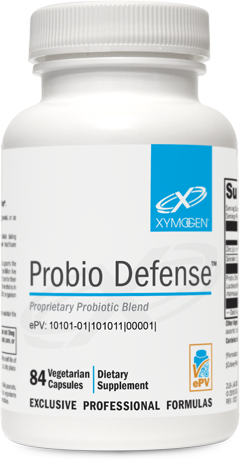
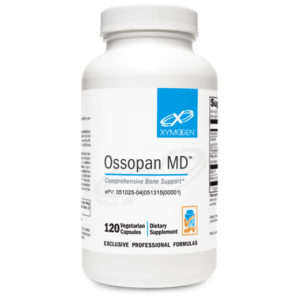
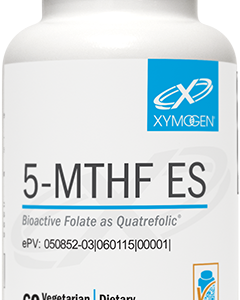
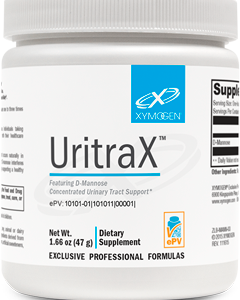
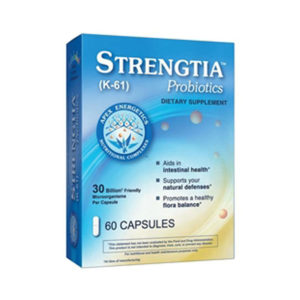
Reviews
There are no reviews yet.